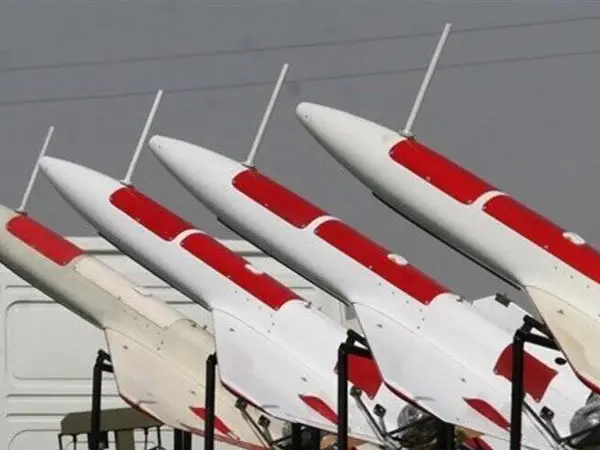Israeli Defense Minister Benny Gantz said Monday that Iran has used more than 10 military sites in Syria to produce advanced missiles and weapons for its proxies.
Israel has been mounting air and missile attacks since 2017 on what it has described as Iranian-linked targets in Syria, but these have largely been weapons shipments and warehouses.
There were no immediate comments from Iran and Syria on Monday, but Damascus has declined to comment on such accusations in the past and Tehran has denied it builds production capabilities across the Middle East.
But top Iranian military officials routinely threaten Israel with attacks by their proxy forces in Syria and Lebanon and even direct strikes.
Ground forces chief Brigadier General Kyumars Haydaritold the semi-officila hardline Mehr news website on Monday that Iran has developed an advanced long-range suicide drone "designed to hit Israel's Tel Aviv, Haifa.” He said the drone, named Arash-2, is a newer version of Arash-1.
Speaking at a conference in New York, Gantz presented a map of what he said were military sites of the Centre D'Etudes et de Recherches Scientifiques (CERS), a Syrian government agency, involved in manufacturing missiles and weapons for Iran.
"Iran transformed CERS into production facilities for mid and long-range, precise missiles and weapons, provided to Hezbollah and Iranian proxies. In other words, it became yet another Iranian front – a factory for advanced, strategic weapons," Gantz said.
Israel is fiercely campaigning against a new nuclear deal with Iran that the United States and three of its European allies, Britain, France and Germany have been negotiating since April 2021. Both former Prime Minister Benjamin Netanyahu and the current leadership argue that the new deal will not permanently stop Iran from developing nuclear weapons but will lift US sanctions and release hundreds of billions of dollars, which would worsen Iran’s missile and terror threats in the region.
Strikes attributed to Israel have recently intensified on Syrian airports to disrupt Tehran's increasing use of aerial supply lines to deliver arms to allies in Syria and Lebanon, including Hezbollah, regional diplomatic and intelligence sources have told Reuters.
Israeli strikes have repeatedly targeted the Masyaf area, a zone in the western Hama district where Gantz said an underground weapons production facility threatens Israel and the region.
"Masyaf, specifically, is used to produce advanced missiles," he said.
Gantz added that Iran was also working on building missile and weapons industries in Lebanon and Yemen. The Lebanese Hezbollah already possesses precision an arsenal of precision missiles and Israeli officials are warning of its intentions to target the country if a conflict breaks out.
"If this trend will not be stopped, within a decade, there will be advanced Iranian industries across the region, producing weapons and spreading terror," he said.
With reporting by Reuters
